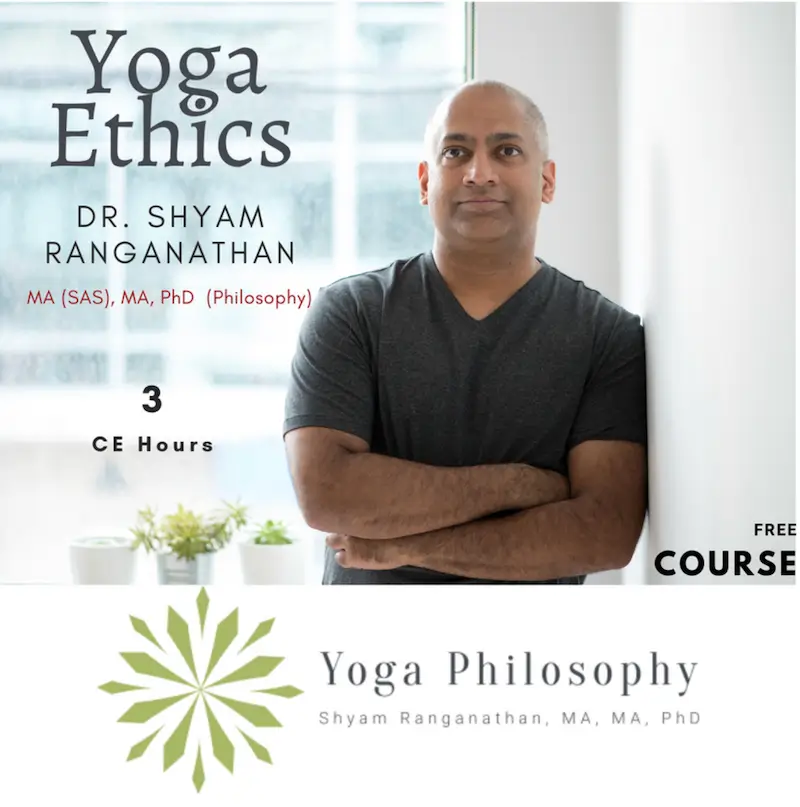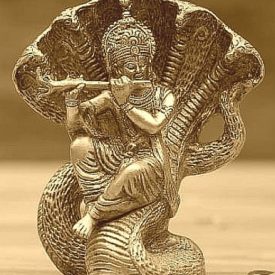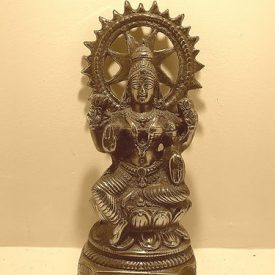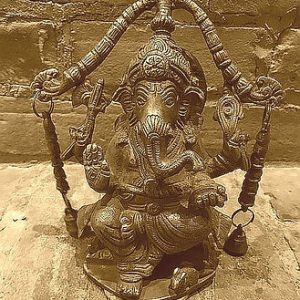Free Yoga Courses
Join these free courses
Expand your appreciation and knowledge of Yoga and Philosophy.
Dive into the world of yoga philosophy with the Yoga Philosophy Institute‘s engaging, free courses that go far beyond traditional yoga practice. These thoughtfully crafted sessions explore fascinating connections between yoga, ethics, material success, and social issues like mental health. Whether you’re a curious beginner or a seasoned practitioner, these courses offer compelling insights into the philosophical depth of yoga – from understanding its anti colonial roots to examining classic texts like the Bhagavad-Gītā. Many courses provide continuing education credits and include discussion spaces, making them an intellectual and practical resource for anyone seeking to deepen their understanding of yoga’s profound philosophical traditions. Need guidance? Talk to us now.
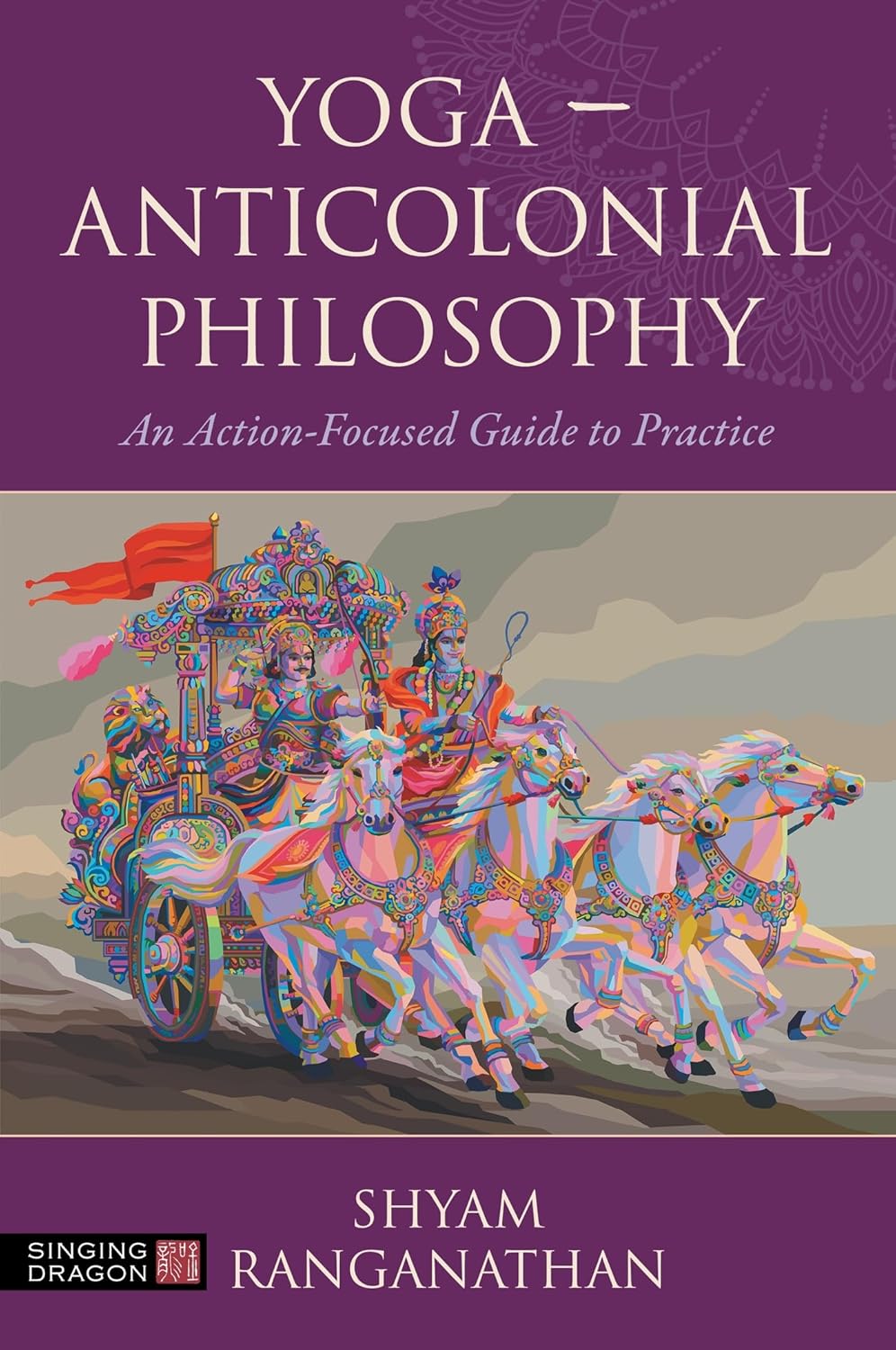
Yoga-Anticolonial Philosophy
If you purchased Dr. Shyam Ranganathan’s 2024 book, Yoga—Anticolonial Philosophy: An Action Focused Guide to Practice, we’ve got a free course to support you! You can find the book online or at your local bookstore that carries vital books for your Yoga practice.
Yoga, Apparel and Climate Change
In this FREE course, participants will learn about: the original philosophy of Yoga; the basics of Yoga’s ethics; and its implications for colonialism and climate change. I’ll be focusing on the problem of the yoga apparel industry as something that is salient to practitioners of yoga in two ways. First many practitioners of yoga are consumers of yoga apparel. Secondly, it is a significant contributor to climate change. I’ll contrast differing approaches to this challenges. On the one hand, purists might claim that we should simply have nothing to do with this industry. On the other hand, one might try to look at a bigger picture, against which yoga apparel may seem to be an insignificant issue. However, a Yoga based approach to practical questions forces us to positively impact what is in our neighborhood. And the yoga apparel industry is in the neighborhood of yoga practice.
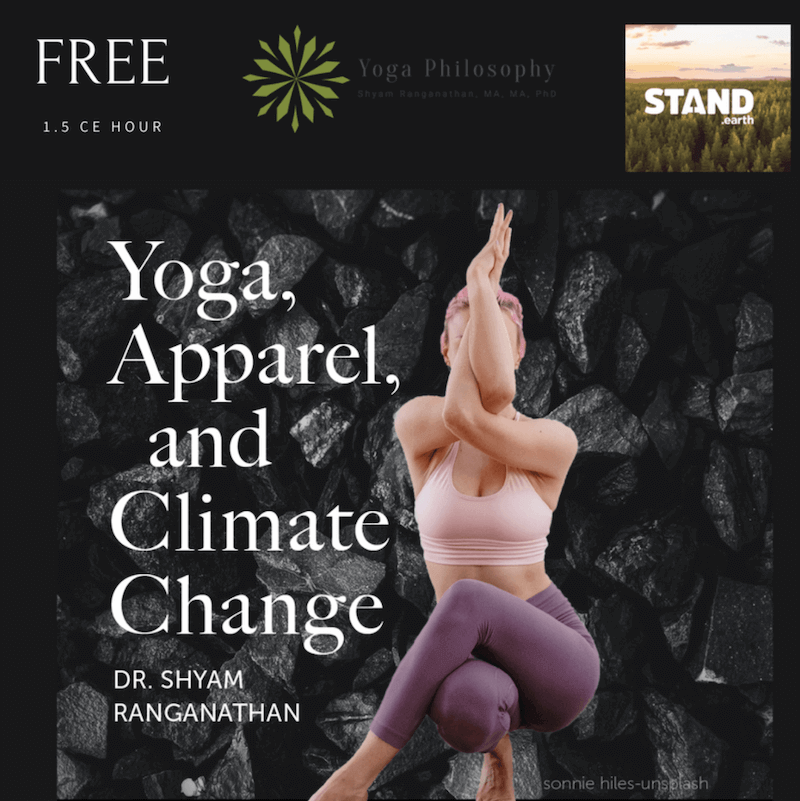
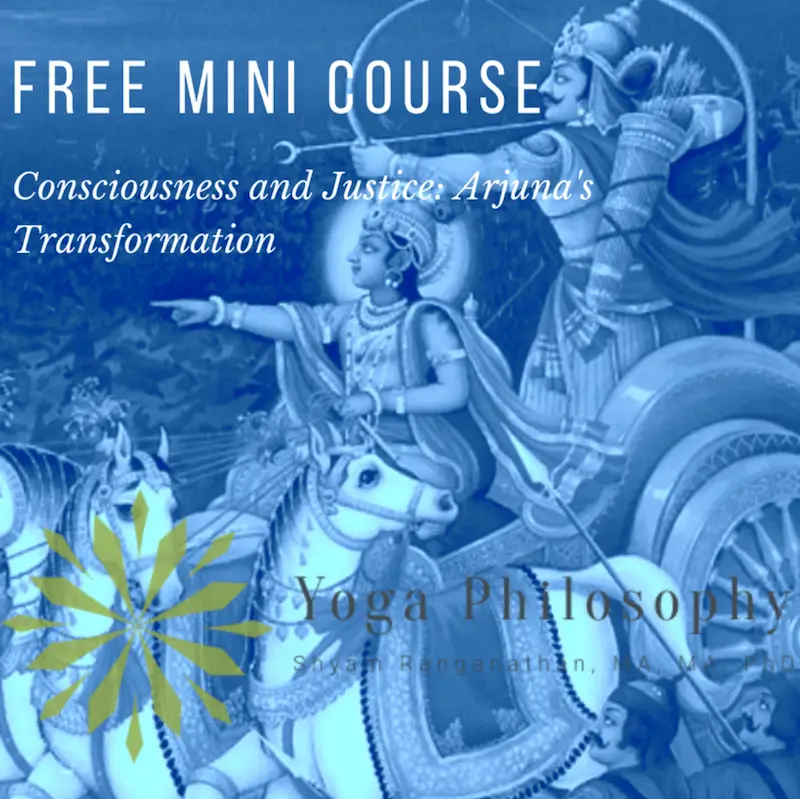
Consciousness and Justice: Arjuna’s Transformation
This is a webinar presentation I gave for a series on the Mahābhārata for Delhi University, India. The Bhagavad-Gītā is one chapter of this epic and this talk contextualizes the argument for Yoga in the Gītā. While the course is freely available on YouTube, to aid study I am housing this webinar with a discussion space. This free course is worth 1 CE hour. This will be useful especially to those famliar with the Mahābhārata.
This is an advanced dive into the theoretical backdrop of the Bhagavad Gītā, a central text of Yoga. In this webinar, I explore the moral problem of the Bhagavad Gītā, namely, how to deal with the problems caused by Conventional Morality, which gives rise to Moral Parasites. The argument in the Bhagavad Gītā is that the moral order has to be reset by engaging in Yoga. Understanding this argument is a central piece of the insight into the value of Yoga.
Justice, Ethics, Yoga
In the fall of 2020, I, Dr. Shyam Ranganathan, had the honor and privilege of delivering the Key Note address of Loyola Mount University’s Yoga Day. The title of my talk was “Justice, Ethics, Yoga.” While this talk is available freely online, I decided to house it in Yoga Philosophy to allow students the opportunity to watch this video at their convenience and to earn CE credit for it.
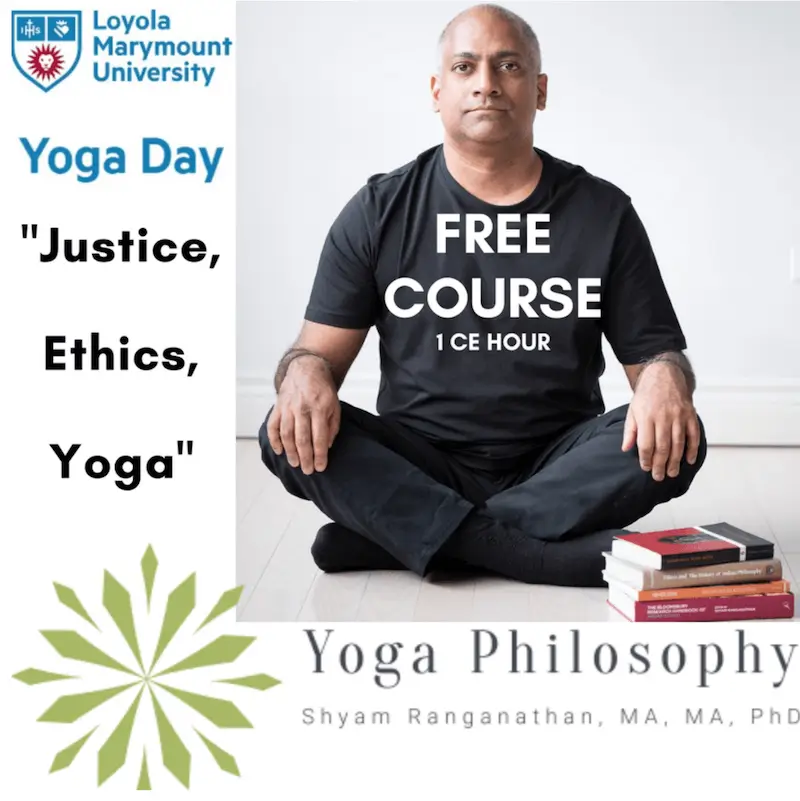
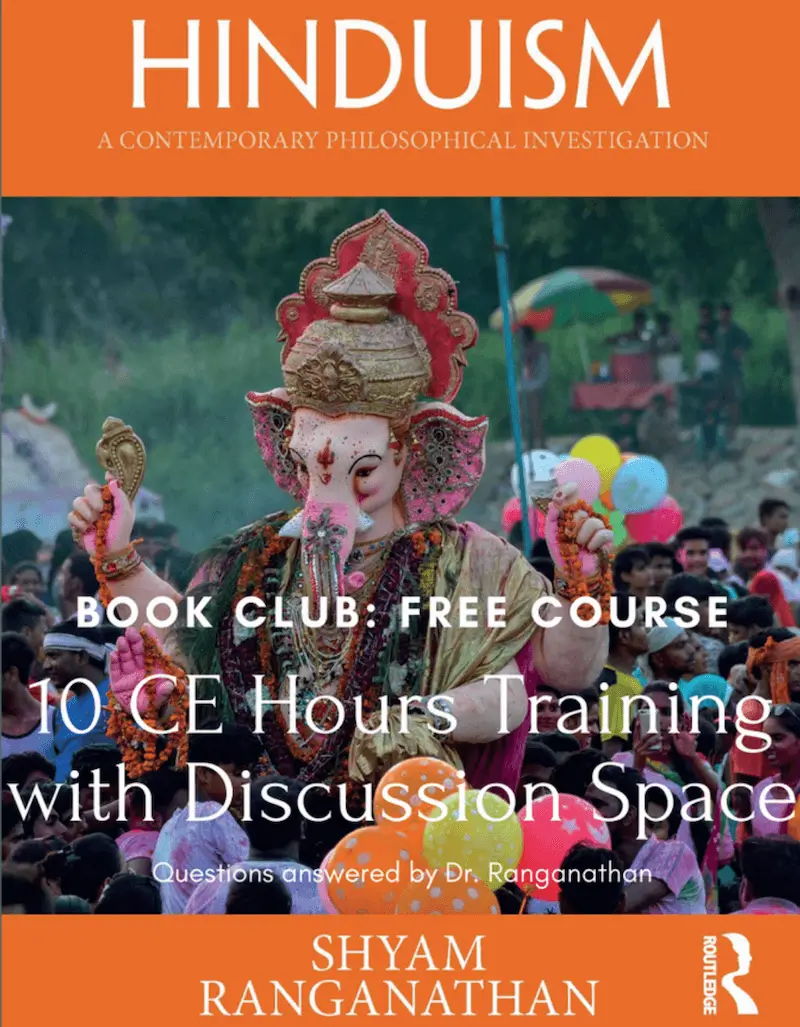
10 CE Hours for Book Owners with Discuss
Everything you wanted to know about Hinduism but were afraid to ask: What is Hinduism, what do Hindus believe, what’s the relationship between Hinduism and other South Asian religions? is Yoga Hindu? Is Yoga a religion?. “Hindu” is not an Indian word. It’s Persian and was used by the British to name all indigenous South Asian religion. Before that, no South Asian thought of themselves as a Hindu. But what drove the British to assume that South Asians have a religion? The 𝘞est’s basic model of thought, the linguistic model of thought. This confuses thought with the meaning of what one says, and then the thought of people who are not European is problematized as religion. Hence, just as the only people without color are Europeans and everyone else is a POC, the only people’s philosophy that isn’t religious are European, and everyone else’s is religion. The problem with the scholarship in the 𝘞estern academy is that it buys all of the assumptions of the 𝘞est and tries to employ these concepts of imperialism (religion, spirituality) to understand BIPOC traditions and South Asia. And the result is just more 𝘞estern Imperialism. In this book I look to indigenous South Asian modes of explanation — logic! — for a different way to understand South Asia and to critically evaluate the imperialism of the 𝘞est . If you want to decolonize your understanding of Yoga and South Asian traditions of meditation, this course is for you! It’s FREE to join, though nominally it’s meant for people who have a copy of Hinduism: A Contemporary Philosophical Investigation, by Dr. Ranganathan (honor system, no one is checking). The course also has a discussion space moderated by Dr. Ranganathan where you can ask and have questions answered.
Yoga Ethics: Free Course (3 CE Hours)
This three part course on Yoga Ethics covers Yoga Ethics in three parts:
1: Part 1, Yoga Ethics and Western Impositions
• Part 2, Yoga Ethics and South Asian Alternatives
• Part 3, Yoga Ethics and Activism
When I began my research in South Asian Studies (SAS), the dominant view among people who fancied themselves scholars of South Asia was that there was no extensive or significant history of thinking critically about ethical, moral and political questions. This means, there wouldn’t be any such thing as Yoga Ethics. My lonely distinction as a researcher since the 1990s has been to show that this narrative gets things upside down. Ethics or moral philosophy was the basic concern in this tradition (philosophy about dharma) and the usual gloss that denies that South Asians engaged critically in moral and practical questions is a function of Western imperialism and its anti-logical approach to everything. Select publications on this include:
*Ranganathan, Shyam. 2017. Ethics and the History of Indian Philosophy. 2 ed. Delhi: Motilal Banarsidass Publishers (first edition 2007).
*Ranganathan, Shyam (Ed.). 2017. The Bloomsbury Research Handbook of Indian Ethics. London: Bloomsbury Academic.
And, with respect to yoga ethics:
*Ranganathan, Shyam. 2017. ‘Patañjali’s Yoga: Universal Ethics as the Formal Cause of Autonomy.’ In The Bloomsbury Research Handbook of Indian Ethics edited by Shyam Ranganathan, 177-202. London: Bloomsbury Academic, and
Patañjali. 2008. Patañjali’s Yoga Sūtra: Translation, Commentary and Introduction by Shyam Ranganathan. In Black Classics. Delhi: Penguin Black Classics.
~~~
Yoga Philosophy (YACEP, CYA- RYSGOLD, MA, MA, PhD) is by Dr. Shyam Ranganathan: yogaphilosophy.com/bio
